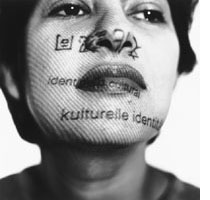
Fall
1999
Crossing linguistic and cultural boundaries
Super-power sense and sensibility
![]()
![]()
Soundings is a publication of the School of Humanities and Social Science at MIT
Comments and questions to www-shss@mit.edu
Crossing linguistic and cultural boundaries
 Author
Andrei Makine wrote his first novels in French. Born in the Soviet Union
in 1957 and migrating to France 30 years later, Makine experienced repeated
rejections of his two manuscripts by French publishers. When he resubmitted
them as "translated from the Russian," they were wholeheartedly accepted;
even his fictitious translator was praised. In 1995, Makine garnered two
of the most prestigious Parisian prizes for Dreams of My Russian Summers,
a lyrical meditation on bicultural identity and myth. Soon after, he was
identified as a "Franco-Russian" writer. These days, the French are proud
to label his novels "French literature."
Author
Andrei Makine wrote his first novels in French. Born in the Soviet Union
in 1957 and migrating to France 30 years later, Makine experienced repeated
rejections of his two manuscripts by French publishers. When he resubmitted
them as "translated from the Russian," they were wholeheartedly accepted;
even his fictitious translator was praised. In 1995, Makine garnered two
of the most prestigious Parisian prizes for Dreams of My Russian Summers,
a lyrical meditation on bicultural identity and myth. Soon after, he was
identified as a "Franco-Russian" writer. These days, the French are proud
to label his novels "French literature."
Richard Rodriguez, raised in California by Mexican parents, conjured up in Hunger of Memory a paradisiacal childhood in which the private language of home represented a blissful linguistic unconsciousness. Exile from his linguistic Garden of Eden came when he had to learn English in public school. His autobiography is at once a nostalgic look at a Mexican-American childhood and a reasoned argument against bilingual education.
The nuances, questions, complexities and controversies inherent in bilingualism and biculturalism abound. While the phenomenon is strong and on the rise in our increasingly global environment"—30 percent of MIT students, for example, are raised in homes in which a language other than English is spoken "—the subject remains surprisingly neglected as an area of academic inquiry. Into the fray comes the fledgling Bilingual/Bicultural Studies Center (CBBS), an interdisciplinary and unique venture"—it is the only such Center in the country"—devoted to exploring the array of issues connected to crossing linguistic and cultural boundaries.
"How do we become bilingual? What does it mean to belong to at least two cultures? What are the identity issues related to it? What role does the politics of language and culture play in our approach to the subject? Thinking about and analyzing the implications of these issues"—scientifically, culturally, politically, socially and in terms of literature"—is the realm of the CBBS," says Isabelle de Courtivron, professor of French studies and CBBS director. In addition to approaching the subject through the lens of history, political science and literary studies, linguists and brain and cognitive scientists can add to the subject's understanding.
The Center aims to provide an alternative conceptual framework to the controversial paradigm of ethnic studies, which on the national stage has become politicized in entrenched ‘majority/minority' viewpoints and calcified debates on multiculturalism. "Bilingual/bicultural studies offers a model that is transnational, multigenerational, challenges established categories and helps us move away from divisive North American identity politics," says de Courtivron. Internationally, the issues associated with bilingualism offer equally rich and diverse material for study, including the legacies of colonialism, the consequences of immigration and emigration and the politics of language and culture, as expressed in Quebec, mandatory Arabization in Algeria and the struggle over English versus Mandarin in Hong Kong.
The Center was launched last year with a highly successful bilingual writers series entitled "Living in Two Languages." This year's events include a film series, a visiting professorship held by author Eva Hoffman and readings by Andrei Makine and Richard Rodriguez. Also on the planning slate are courses and conferences on various bilingual/bicultural issues. This spring, for example, "The Generative Approaches to Second Language Acquisition: A Special Focus on the Bilingual Brain," will take place March 30-April 1. Future symposia will cover such topics as bilingual education, American Sign Language, writers and translators and bilingual theater.
![]()
Copyright © 2000 Massachusetts
Institute of Technology